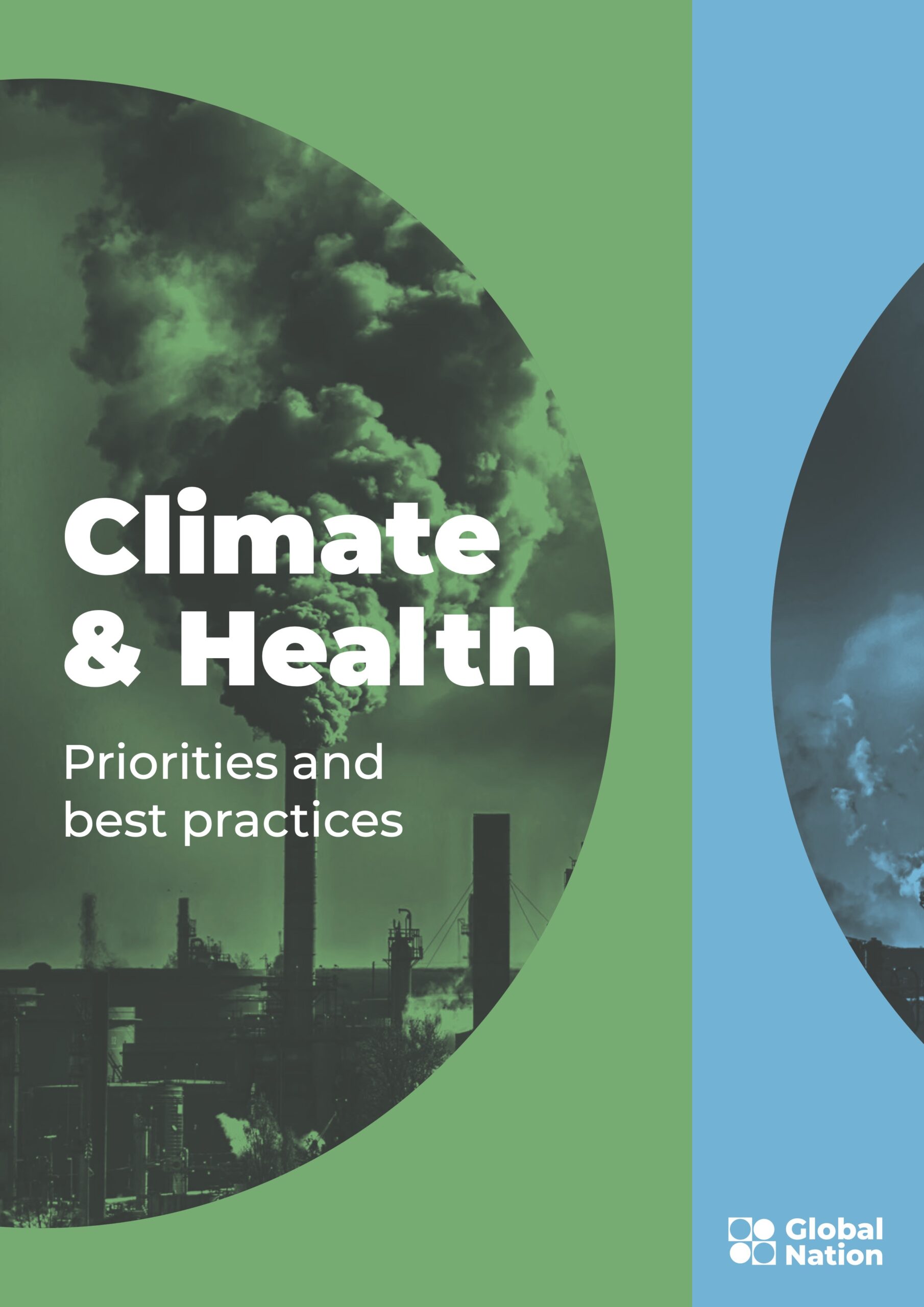Climate & Health Priorities and best practices
Organization: Global Nation
Year: 2025

‘The climate crisis is a health crisis’. This was not always a self-evident truth; and its very acceptance, in some measure, is under threat of backslide.
This paper aims to chart the recent progress and latest thinking, and understanding, of the impact of climate change on human health; summarise the latest thinking from experts in the field; and document best practices of projects and policies, addressing different constraints to collective action; and share best practices and lessons from around the world.
It is also a systematic and timely attempt to disentangle the uncertainty that has befallen the international development sector in the first quarter of 2025, and the realignment – often in opposing directions – of government, and philanthropic efforts alike.
The first part of the paper summarises expert consultations and conversations on the challenges and opportunities ahead of the Climate and Health expert community.
There is much, and many, to extol. Particularly since the end of the COVID-19 pandemic, governments, international organisations, philanthropies, and civil society have developed our collective response to the crisis, from responsive f inancing mechanisms to creative communitybased initiatives. Nonetheless, urgent needs still outweighing available funding, barriers to institutional collaboration and information sharing are slow to erode, and policy frameworks and human resources and expertise continue to be hard-pressed to respond to increasingly complex needs, to provide answers as the questions are still being written.
The second part highlights 10 innovative case studies, representing different stages of policy engagement, from supranational legislation to community-led action. Recommended by experts at the intersection of climate and health for their impact, creativity, and potential for replicability, they invite policymakers, experts, and the interested reader to consider, adapt, and adopt them.
Several learnings emerge from the cases. The breaking down of thematic and sectoral barriers, and improving collaboration, is an obvious shared call by contributing experts; the walls to bring down, however, go beyond those separating climate and health experts and policymakers, but a wide range of sectors including natural resources management, energy, infrastructure, education, and so from across the world, as would be apt for a planetary crisis.
Finally, the politics of this time are bringing their own challenges to these efforts, threatening the collaborative nature of the global response, but the very response itself. A surveying effort will prove necessary to systematically understand new policy and programmatic gaps; such a collaborative effort – for this cannot be the work of a single institution – could very well be the necessary impetus to reinvigorate the Climate and Health community in the short and medium term.